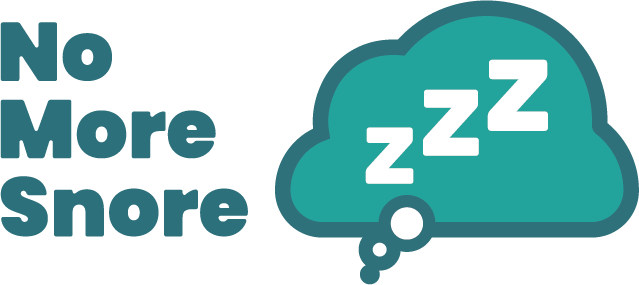Snoring is a common condition that affects millions of people worldwide. It not only disrupts the quality of sleep for the snorer but can also disturb the sleep of their partners or family members. While there are various medical interventions available to address snoring, many individuals seek natural remedies as an alternative. In this blog post, we will explore some popular natural remedies for snoring and discuss their effectiveness based on scientific research.
Lifestyle Changes:
Certain lifestyle changes can significantly reduce snoring. These include:
- Weight Loss: Excess weight can contribute to snoring by narrowing the airways. Losing weight through a healthy diet and regular exercise can alleviate this issue.
- Sleep Position: Sleeping on your back can exacerbate snoring. Encouraging sleeping on your side or using special pillows to promote side-sleeping may help reduce snoring.
- Avoiding Alcohol and Sedatives: Alcohol and sedatives can relax the muscles in the throat, leading to increased snoring. Avoiding these substances before bedtime can be beneficial.
Herbal Remedies:
Several herbs and natural ingredients are believed to alleviate snoring. While anecdotal evidence supports their use, scientific studies are limited. Some commonly mentioned herbs include:
- Peppermint Oil: Peppermint oil has been traditionally used to relieve congestion and open up the airways. Gargling with diluted peppermint oil or using a nasal spray containing peppermint oil may help reduce snoring.
- Eucalyptus Oil: Similar to peppermint oil, eucalyptus oil is known for its decongestant properties. Inhalation of eucalyptus oil steam or using it in a diffuser might provide relief from snoring caused by nasal congestion.
Nasal Strips and Dilators:
Nasal strips and dilators are adhesive strips or devices that aim to open up the nasal passages. They can help improve airflow and reduce snoring. While these remedies may provide temporary relief, they do not address the underlying causes of snoring.
Oral Devices:
Oral devices, such as mandibular advancement devices (MADs) or tongue-retaining devices (TRDs), are designed to keep the airways open during sleep. These devices are typically custom-fitted by a dentist or healthcare professional. Research suggests that oral devices can effectively reduce snoring in some individuals.
Humidifiers:
Dry air can irritate the nasal passages and throat, leading to snoring. Humidifiers add moisture to the air, which can alleviate snoring caused by dryness. However, their effectiveness may vary depending on the individual and underlying causes of snoring.
Essential Oils:
Certain essential oils are believed to have therapeutic properties that can alleviate snoring. These include:
- Lavender Oil: Known for its calming effects, lavender oil may help promote relaxation and improve sleep quality, potentially reducing snoring.
- Marjoram Oil: Marjoram oil is believed to have muscle-relaxing properties, which can be beneficial for reducing snoring caused by relaxed throat muscles.
- Thyme Oil: Thyme oil is known for its antiseptic and expectorant properties, which may help clear congestion and open up the airways, reducing snoring.
While essential oils can be used in diffusers or applied topically, it’s important to use them safely and consult with a qualified aromatherapist or healthcare professional.
Acupuncture:
Acupuncture is an ancient practice that involves the insertion of thin needles into specific points on the body. Some studies suggest that acupuncture may help improve snoring symptoms by promoting better airflow and reducing inflammation in the nasal passages and throat. However, more research is needed to establish its effectiveness as a standalone treatment for snoring.
Throat Exercises:
Exercises that target the muscles of the throat and tongue can help strengthen them, reducing the likelihood of snoring. Some commonly recommended exercises include:
- Tongue Slides: Push the tip of your tongue against the roof of your mouth and slide it backward. Repeat several times.
- Throat Constrictor: Purse your lips tightly and hold for a few seconds. Then, open your mouth and repeat the exercise.
- Jaw Exercises: Open your mouth as wide as possible and hold for a few seconds, then close your mouth slowly. Repeat several times.
While throat exercises may offer some benefits, they require consistency and may not work for everyone. Consulting a speech therapist or healthcare professional can provide guidance on appropriate exercises.
Herbal Teas:
Certain herbal teas can help soothe the throat and nasal passages, potentially reducing snoring. Examples include:
- Peppermint Tea: Peppermint tea acts as a natural decongestant and can help open up the airways.
- Chamomile Tea: Chamomile tea has relaxing properties that may promote better sleep quality, potentially reducing snoring.
- Ginger Tea: Ginger tea is known for its anti-inflammatory properties, which can help reduce inflammation in the airways and alleviate snoring.
Drinking these herbal teas before bedtime may provide temporary relief and improve sleep quality.
While natural remedies offer potential benefits for snoring, it’s important to approach them with realistic expectations. The effectiveness of these remedies can vary among individuals, and they may not address the underlying causes of snoring. It’s advisable to consult a healthcare professional or sleep specialist if snoring is persistent, severe, or accompanied by other concerning symptoms. They can provide a proper diagnosis and recommend appropriate treatment options to improve sleep quality and overall health.

